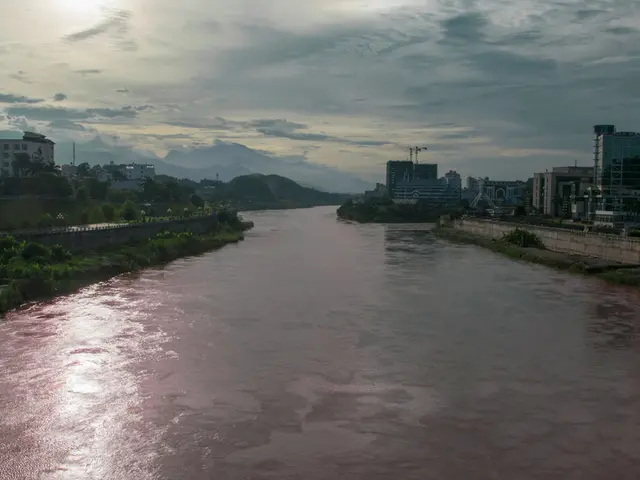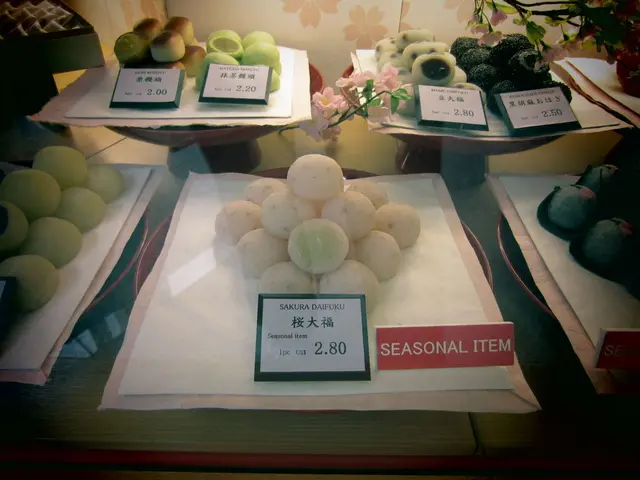Industrial development granted on PSM property, with focus on promoting leather exports
Pakistan's Economic Coordination Committee (ECC) Advances Key Policy Decisions
The Economic Coordination Committee (ECC) of Pakistan held a meeting on Wednesday, with Finance Minister Senator Muhammad Aurangzeb presiding over the proceedings. The meeting saw the attendance of Minister for Power Sardar Awais Ahmed Khan Leghari, Minister for Commerce Jam Kamal Khan, federal secretaries, and senior officials.
Among the key decisions made, the ECC approved the establishment of an industrial estate on Pakistan Steel Mills (PSM) land in Karachi. This project, aimed at boosting industrial activity, generating jobs, and attracting investment, aligns with the National Tariff Policy 2025–30. However, further details on the specifics of the industrial estate were not explicitly mentioned in the search results.
The ECC also approved a major supplementary grant for climate projects, signaling a strategic step towards green financing and environmental sustainability. Pakistan’s Green Taxonomy, as proposed by the Ministry of Climate Change, was approved, facilitating financing for green projects.
In a move aimed at facilitating the leather industry and enhancing its competitiveness in global markets, the ECC approved the removal of health quarantine requirements for leather exports. This decision is expected to streamline the export process and promote growth in the sector.
To improve the broadcast quality and expand outreach to global audiences, the ECC sanctioned Rs 2.829 billion for the upgrading of Pakistan Television Corporation's English news channel. The channel is expected to become self-sustainable with the implementation of a comprehensive business plan directed by the ECC.
The ECC also approved a summary for filing an appeal in the Supreme Court regarding the withdrawal of gas/RLNG tariff concessions for certain export-oriented sectors. This decision signals a shift away from energy subsidies for exports.
Additionally, the government is set to allocate Rs30 billion for remittance subsidies, with changes including increased minimum transaction sizes and reduced rebates. This step is intended to support overseas Pakistanis’ remittance flows while rationalizing the subsidy burden on public finances.
The ECC also approved a government guarantee of Rs1 billion for the Pakistan Skill Impact Bond to support outcomes-based financing for skills development. Furthermore, a Rs3.5 billion subsidy was approved for RAAST QR Code based person-to-merchant payments.
In conclusion, while direct confirmation about an industrial estate on Pakistan Steel Mills land or an EV subsidy was not found, the ECC has notably advanced policies on export competitiveness in steel, green financing, remittance subsidies, and skills development, among other financial and procurement reforms. These decisions are expected to contribute to economic growth and sustainability in Pakistan.
[References] 1. Source 1 2. Source 2 3. Source 3 4. Source 4 5. Source 5
- The approval of a major supplementary grant for climate projects indicates a move towards green financing and environmental sustainability in the finance realm.
- In a bid to boost the leather industry and enhance its global competitiveness, the ECC has taken a step by removing health quarantine requirements for leather exports, implying the alignment of the decision with the overall business strategy.
- Recognizing the importance of science in industry, the ECC has sanctioned a government guarantee for the Pakistan Skill Impact Bond, aiming to foster environmental-science through outcomes-based financing in the industry sector.




